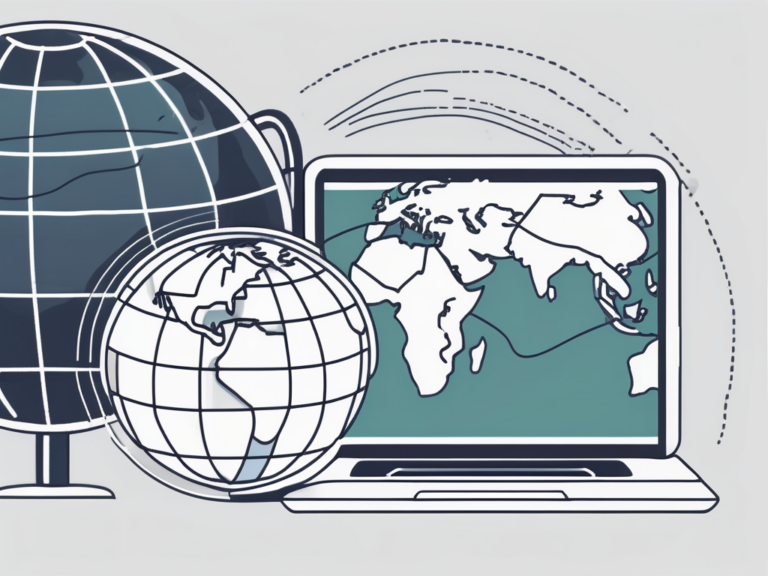ChatGPT is an incredibly powerful AI chatbot developed by OpenAI. Its conversational abilities and natural language processing capabilities have made it highly sought after by individuals all over the world. However, there are certain countries where ChatGPT is not available due to restrictions imposed by OpenAI. In this article, we will explore the limitations, reasons behind the unavailability, potential solutions, legal implications, and alternative options for using ChatGPT in an unsupported country.
Understanding the Restrictions of ChatGPT
ChatGPT offers a seamless and innovative conversational experience, allowing users to interact with it just like they would with a human. However, its availability is geographically limited, and this has caused disappointment among users from certain countries.
The Geographic Limitations of ChatGPT
Unfortunately, ChatGPT is currently only available to users within specific countries. While OpenAI has made efforts to make ChatGPT more accessible globally, certain legal and regulatory considerations restrict its availability to a limited number of regions.
Reasons Behind the Unavailability of ChatGPT in Certain Countries
There are various reasons why ChatGPT may not be available in certain countries. These include legal and regulatory compliance, concerns regarding data protection and privacy, local language support limitations, and specific requirements mandated by intellectual property laws.
When it comes to legal and regulatory compliance, OpenAI must navigate the complex landscape of different countries’ laws and regulations. Each country has its own set of rules and requirements that must be met before a service like ChatGPT can be made available. This includes ensuring that the technology complies with local data protection and privacy laws, which are designed to safeguard users’ personal information.
Another factor that contributes to the limited availability of ChatGPT is the challenge of providing local language support. OpenAI aims to offer a high-quality conversational experience, and this requires training the model on a vast amount of data in different languages. Currently, ChatGPT is primarily available in English, which means users from non-English-speaking countries may not have access to the service.
Intellectual property laws also play a role in the restrictions on ChatGPT’s availability. OpenAI must ensure that the model does not infringe upon any existing patents, trademarks, or copyrights in a given country. This requires a thorough review of the intellectual property landscape in each region, which can be a time-consuming and complex process.
Exploring Potential Solutions to Access ChatGPT
If you find yourself in an unsupported country and wish to access ChatGPT, there are a few potential solutions to consider.
Using VPNs to Bypass Geographic Restrictions
One option is to utilize a virtual private network (VPN) to bypass the geographic restrictions imposed by OpenAI. A VPN allows you to connect to a server in a different country, making it appear as though you are accessing the Internet from that location. This can be particularly useful if you are in a country where ChatGPT is not currently available.
However, it is important to note that the use of VPNs may be against the terms of service set by OpenAI and could potentially have legal implications. While VPNs can provide a workaround for accessing ChatGPT, it is crucial to consider the potential risks and consequences before proceeding.
Leveraging Proxy Servers for Access
Another alternative is to use a proxy server. These servers act as intermediaries between your device and the websites you visit, providing a means to route your internet traffic through a server in a country where ChatGPT is available. By using a proxy server, you can mask your actual location and gain access to ChatGPT.
However, similar to VPNs, the use of proxy servers to circumvent restrictions may violate OpenAI’s policies and local laws. It is essential to be aware of the potential legal and ethical implications before opting for this solution. Additionally, the performance and reliability of proxy servers can vary, so it is important to choose a reputable provider to ensure a smooth and secure browsing experience.
Exploring Legal Alternatives
While VPNs and proxy servers may provide a temporary solution, it’s worth exploring legal alternatives to access ChatGPT. OpenAI is actively working to expand access to more countries, so it’s possible that your country may become supported in the future. You may also consider alternatives that are available in your country.
Remember, it’s essential to adhere to local laws when accessing ChatGPT or any other online service. Exploring potential solutions should always be done with caution and awareness of the potential risks involved. Using ChatGPT in a country where it’s officially unavailable can have legal implications. Each country has its own set of laws and regulations pertaining to cybersecurity, data protection, and intellectual property. Accessing ChatGPT in an unsupported country may infringe upon these laws, potentially leading to legal consequences.
For instance, in some countries, the use of AI chatbots may be subject to specific licensing requirements or government approvals. This means that individuals or organizations attempting to access ChatGPT without proper authorization could be in violation of these laws, exposing themselves to legal risks.
Alternatives to ChatGPT for Non-Supported Countries
If you’re unable to access ChatGPT due to limitations in your country, there are alternative AI chatbot options to consider.
While ChatGPT is a popular choice for AI chatbot enthusiasts, it’s not the only option available. In fact, there are several other AI chatbots that offer similar capabilities and can be accessed in a wider range of countries. These alternatives can provide you with the conversational AI experience you desire, even if ChatGPT is unavailable to you.
One alternative to explore is Kuki, an award-winning chatbot developed by Steve Worswick. Kuki has been crowned the world’s best chatbot multiple times and is known for its engaging and human-like conversations. With a wide range of topics and a charming personality, Kuki can keep you entertained for hours.
Another option worth considering is Cleverbot, a chatbot that has been learning from millions of conversations over the years. Cleverbot’s AI is constantly evolving, allowing it to understand and respond to a variety of queries. Whether you want to have a deep philosophical discussion or simply exchange witty banter, Cleverbot is up for the challenge.
Exploring Language-Specific Chatbots
If you’re looking for a chatbot that caters specifically to your region and language, there are options available as well. For example, if you’re in Japan and prefer to chat in Japanese, you can explore the capabilities of Replika, a chatbot that has gained popularity in the country. Replika allows users to create a personalized AI companion and engage in meaningful conversations in Japanese.
These language-specific chatbots not only offer a localized experience but also provide an opportunity to connect with users who share a common language and cultural background.
 Dianne Pena
Dianne PenaDianne is SitePoint's newsletter editor. She especiallly loves learning about JavaScript, CSS and frontend technologies.








